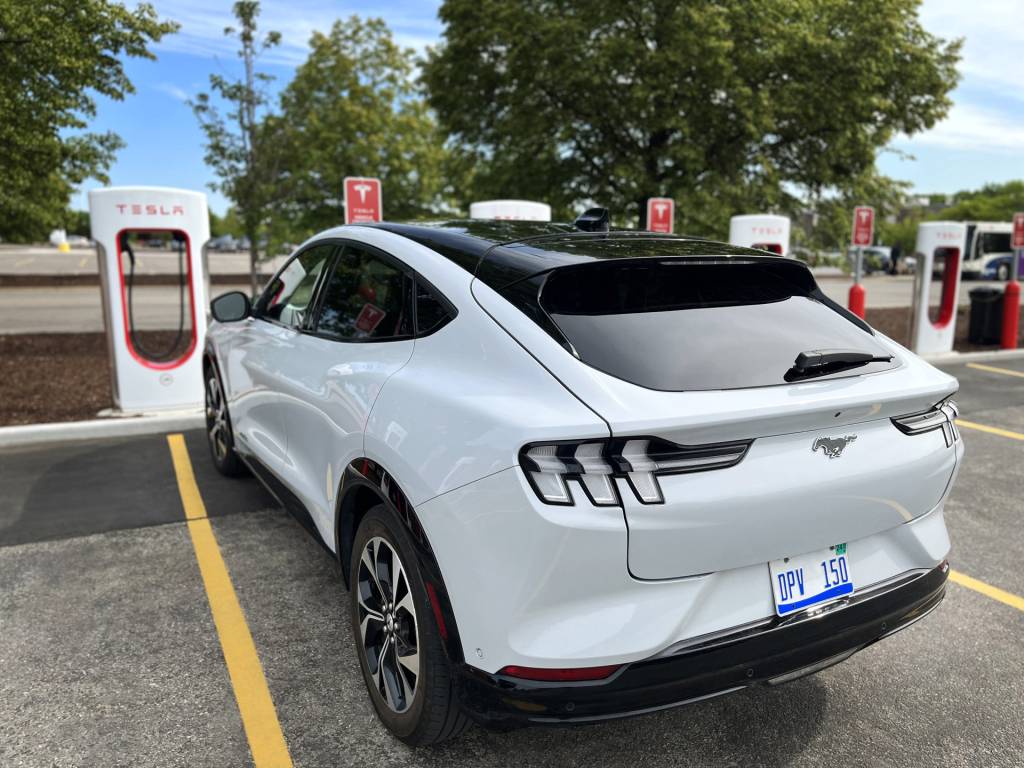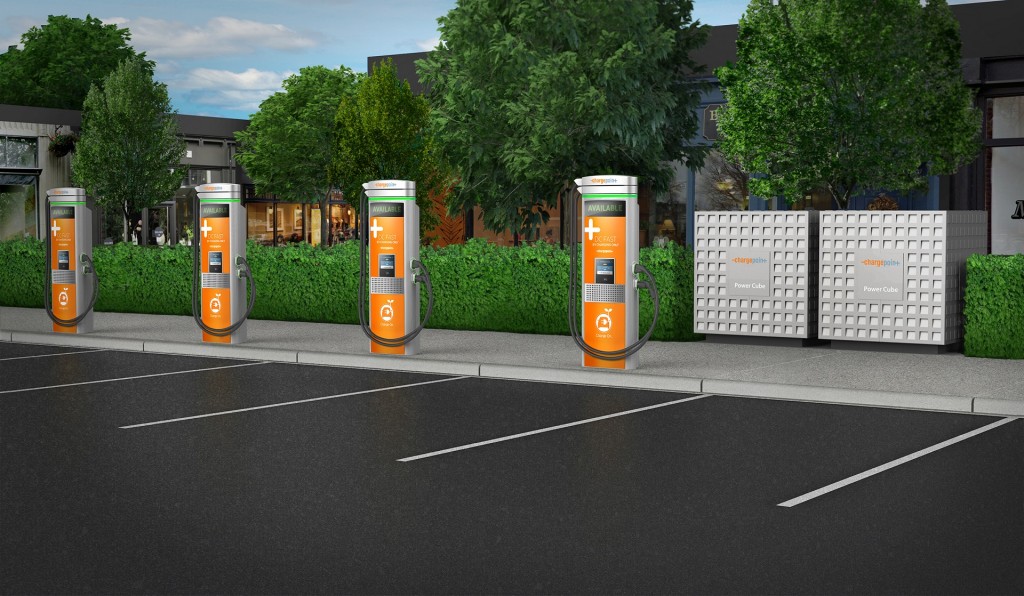The White House is offering subsidies to charging stations that use Tesla connectors, as long as they also include Combined Charging Standard (CCS) connectors, Reuters reported Friday.
The report follows an announcement by General Motors this week, and Ford a couple of weeks earlier, that they would adopt the Tesla connector, which Tesla recently rebranded as the North American Charging Standard (NACS) for future EVs. Both automakers have favored CCS up to this point.
The federal government said earlier this year that Tesla will need to open its network to other EVs in order to be eligible for a piece of the $7.5 billion set aside in the Biden administration’s infrastructure law, which aims to create a national network of 500,000 chargers. States have control of $5 billion of that funding, spread over five years, but it must be approved by the federal government.
GM EVs get Tesla Supercharger access in 2024
The White House did not say whether CCS adapters were enough for Tesla to prove interoperability, and that wasn’t addressed in the statement reported by Reuters. Green Car Reports has reached out to the Joint Office that oversees implementation of the program.
In a letter to the Federal Highway Administration last year, Tesla argued its Supercharger stations should qualify for federal funding if they were co-located with CCS stations, which would allow the automaker to avoid installing CCS connectors on its own chargers.
The federal government is also in the midst of tackling charger reliability in the infrastructure buildout—including requirements for data on uptime and reliability. It’s another box Tesla will have to check to receive federal funding for its charging stations—funding other networks relying on the CCS connector had hoped to take advantage of.

Ford Mustang Mach-E at Tesla Supercharger station
After the defections of Ford and GM, federal funding for Tesla charging stations would be another blow to CCS. It also puts hardware manufacturers and charging networks in the position of having to decide which format to support. Some had already announced plans to offer NACS compatibility, but in the few days following there’s already been a rapid push to support the Tesla standard.
“Ultimately, the increased adoption of the NACS standard relates both to its widespread use by EV drivers and the reliability of stations that currently offer NACS,” Nathan Yang, chief product officer of FLO, said in a statement Friday, adding that “FLO is an industry leader in reliability, offering a 98%+ uptime.”
ChargePoint joined the chorus Monday, announcing plans that it will soon be offering the NACS connector for its Express 250 and Express Plus DC fast-chargers, plus its CFP50, CF6000, and Home Flex AC (Level 2) chargers for home or commercial use. It also promised “cost-effective field upgrades available for chargers that are already in service.”

ChargePoint Express Plus modular DC fast-charging system for electric cars, launched at 2017 CES
“The ChargePoint NACS connector solutions were actively in R&D before recent news about the connector type, and as a result are planned to deliver ahead of the vehicles with native NACS ports announced over the past two weeks,” said the company.
Wallbox also announced plans to incorporate NACS in its Supernova DC fast-charger lineup, which arrives later this year in versions up to 180 kw. “The integration of the NACS into its product lineup is a crucial step in Wallbox’s commitment to expanding the versatility and accessibility of its charging solutions,” it said.
ABB, one of the largest makers of DC fast-charging hardware, also released a statement on Twitter Friday saying it would offer NACS connectors as an option on its products.
